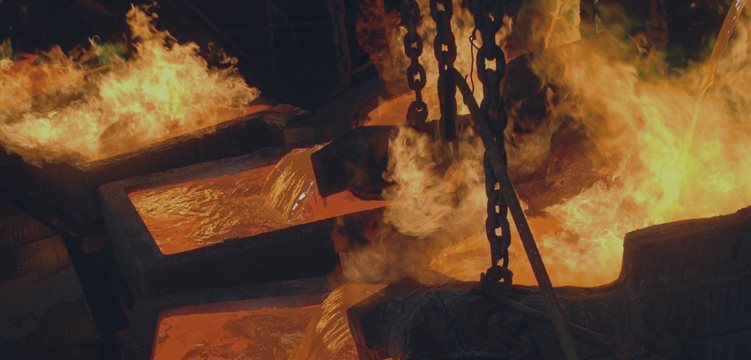
High nickel price, interest from China raise stakes in Australia-Japan Solomons mining dispute
High nickel prices and interest from China are raising the stakes in Solomon Islands as a verdict nears in court hearing between a small Australian mining company and Japanese giant Sumitomo. At issue is the right to mine a rich greenfields nickel site in Isabel Province in Solomon Islands west.
This month the David and Goliath court is expected to return a verdict on the action between the small Australian company Axiom mining and Sumitomo. Peter Strachan, author of Stock Analysis, says the resource they are fighting over is a significant one.
"It is a major resource. It is a fairly high grade by the standard of these low-grade laterites that you see around the world," he said.
Nickel is a crucial component in stainless steel. The deposit in Isabel Province is thought to be one of the global top 15.
Sumitomo has been in Solomon Islands for a decade trying to get permission to explore, and at one stage won an international tender to do so, while Axiom Mining got involved more recently after being approached by a group of landowners.
Axiom CEO Ryan Mount says he looked at mining failures in Melanesia - at Bougainville and Ok Tedi in Papua New Guinea and at the first iteration of Gold Ridge on Solomon Islands main island - before deciding the bottom-up approach was the way to go.
"Essentially we did a lot of research in the region and a lot of history with regards to mining in the Pacific, and in particular Solomon Islands, and we came to the conclusion that a bottom-up approach was more appropriate considering what came out of that research," he said.
"Essentially you start at the top with the constitution of the Solomon Islands and it is clear that the landowners have a say in just about every activity on their land so from the start we knew we had to include them".
"Sumitomo really wasn't in our business plan at all. We were simply dealing with the indigenous landowners. They approached us. Obviously Sumitomo were there, and had been there for quite some time trying to secure the asset."
Axiom formed a joint venture, Axiom KB, with landowners of the Kolosori and Bungusule tribes, giving them a 20 per cent stake in any mining development and a powerful incentive not to agree to mining by any other company.
Sumitomo and Axiom KB each claim they hold the legal right to a prospecting licence. Australian Judge, John Brown, is hearing the case.
Peter Strachan says Indonesia's decision to ban the export of unprocessed nickel ore is feeding their enthusiasm to develop the resource.
"At the moment Indonesia has stopped exporting nickel laterites to China so that has been part of the reason why the nickel price has risen by $2.50 a pound from $6.20 to $8.50 odd a pound," he said.
"The feeling is whoever owns this deposit is going to be able to mine and ship directly the low-grade oxide nickel to customers in China."
Axiom has a fast-track plan. If it wins the case it could be shipping ore within 12 months.
In the 3 years since the dispute began Axiom has put down roots in Solomon Islands with a gold and copper exploration tenement on another island.
However, that has not taken any of Ryan Mount's focus away from the nickel resource in Isabel Province.
"It is a very valuable asset and we are prepared to defend our rights and support our landowner partners," he said.
Expensive debate, Chinese interest
The court case has come at a significant expense to the small Australian miner.
"We have obviously had to fund the court case and our overheads in the Solomon Islands. Over the last year I would say it would have pushed into $8 million dollars," Mr Mount said.
However, he insists the company is still financially secure and able to fund the litigation.
"We have always felt comfortable with our position. We obviously have a business plan and we also evaluate the risks and we prepare for those," he said.
"We obviously went into this case feeling confident or we wouldn't have proceeded with it and, yes, we do feel reasonably confident of the outcome, but we don't want to go talking about that until it is delivered."
While the Japanese and Australian firm fight it out in the Solomon Islands High Court, new companies from China are showing interest.
The China Metalurgical Group owns the Ramu Nickel project in Papua New Guinea, a similar nickel laterite deposit.
The Executive Director of the PNG Chamber of Mines Greg Anderson says a variety Chinese companies are interested in opportunities in the Pacific.
"The Ramu nickel cobalt project was a very big experiment for China - it was one of their biggest mineral investments at the time, overseas, and it hasn't been that easy," he said.
"It has been a difficult project but I think they see this area as very promising".
"It is a big learning curve and the Melanesian countries are very different land wise and with land ownership than the rest of world, so it is an enormous learning curve."
Ramu nickel faced criticism for dumping waste from its PNG mine into the seas in the coral triangle and for not always taking a sympathetic approach in its dealings with traditional landowners.
With the recent shutdown of Solomon Islands' only mine, Gold Ridge, Honiara is hoping more than ever for success with other mineral projects.


